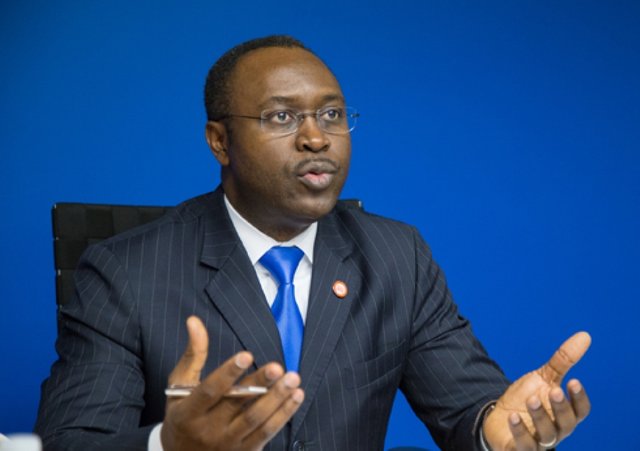Economic growth will rebound in sub-Saharan Africa to 3.1% in 2018, after several disappointing years, forecasts the World Bank (WB) in a report released Wednesday.

The World Bank's chief economist for Africa, Albert Zeufack, estimates that "growth is rebounding, but not fast enough" in sub-Saharan Africa.
In its semi-annual report "Africa Pulse", the World Bank indicates that beyond 3.1% of 2018 growth is expected to rise to 3.6% in 2019 and 2020 for sub-Saharan Africa. The drop in commodity prices since 2014, which many African economies depend on, has resulted in years of depressed growth. In 2016, growth on the continent had dragged down to 1.5% and then started to recover in 2017, to 2.6%. "Growth is rebounding, but not fast enough," commented World Bank Chief Economist for Africa Albert Zeufack. With sub-Saharan Africa's population growth at 2.7 percent, economic growth is just enough for per capita income to rise slightly, Zeufack told a news conference. "The rate of growth is insufficient to eradicate poverty in a near horizon," he said.
Different situations from one country to another
Within the vast area of sub-Saharan Africa, however, several countries stand out for their dynamism: Ivory coast and Senegal in West Africa. Rwanda, Ethiopia and Tanzania in East Africa. with all growth rates exceeding 6% per year. These countries are reaping the benefits of their efforts for economic diversification and infrastructure investment, notes the World Bank, while Central Africa is stagnating, too dependent on its commodities. "It is important for countries to build resilience by making diversification strategies a top priority," said Punam Chuhan-Pole, Senior Economist at the World Bank.
Caution regarding debt
The international institution is also worried about the sharp rise in public debt. "Several countries have doubled their debt in five years and eighteen African countries are now exposed to a high risk of debt distress, against eight in 2013," warns Zeufack. The World Bank suggests several avenues to limit the use of debt. "We need to improve the efficiency of public spending, extend the tax base (the number of households and businesses taxed), create new taxes on real estate, fairer than those on consumption," said Zeufack .
Solve the delicate equation of electricity
Finally, the World Bank calls on sub-Saharan countries to redouble their efforts to solve the problem of access to electricity by improving the management of public companies, and by making greater use of new technologies: solar, micro-networks for villages isolated, payment by mobile phone ... "Two thirds of companies in African capitals do not have access to reliable electricity (because of the many cuts), which limits their competitiveness and therefore the creation of jobs for young people Said Zeufack.